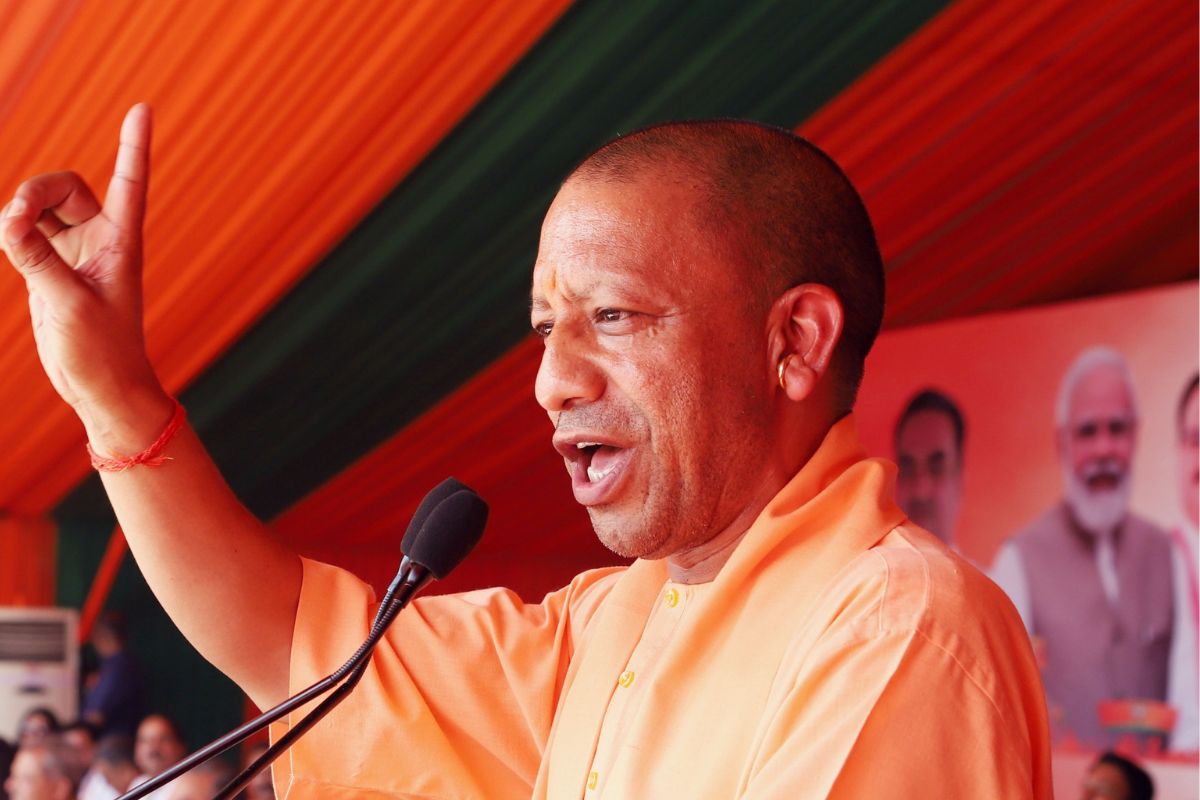Emphasizing that climate change is the most significant concern for the world, Uttar Pradesh Chief Minister Yogi Adityanath on Tuesday said the newly appointed forest and wildlife guards have a crucial role to play in mitigating its harmful effects.
While distributing appointment letters to 647 forest guards and wildlife guards, along with 41 junior engineers selected through the UP Subordinate Services Selection Commission here, the Chief Minister remarked, “Uncontrolled and unplanned development has created a crisis for humanity. We are witnessing untimely rains, excessive rainfall, and hailstorms, while at the same time, some areas suffer from drought and others from floods.”
Advertisement
He added, “In some regions, there is excessive rain, while in others, people are desperate for a drop of water—both situations are harmful. Today, we are all victims of the adverse effects of climate change. If the newly appointed forest and wildlife protectors work diligently and sincerely, they can significantly contribute to reducing these negative impacts.”
The Chief Minister noted that, in the past, it used to take about a year to receive the final appointment letter after an examination. However, with a renewed commitment, the government has now ensured that appointment letters are provided within six months/one year.
“From the beginning of the recruitment process to the distribution of appointment letters, there has been no need for recommendations or bribery. You must have seen that there is no scope for any unfair means to influence the examination, and the government expects you to maintain the same level of integrity in your work.”
Reflecting on the government’s progress over the past seven and a half years, the Chief Minister highlighted that the biggest challenges in combating climate change are deforestation, unplanned development, and the reckless use of plastic. He stressed that these practices can have disastrous effects on the environment.
“Even with efforts to curb these practices, misuse still happens at various levels. In hilly regions, forests can catch fire in any season, causing damage to the environment and triggering landslides. This not only affects wildlife but also has serious consequences for humans. The reduction in forest area is a key factor contributing to human-wildlife conflicts,” he added.
The Chief Minister emphasized that seven and a half years ago, the goal was set to increase forest cover, and significant strides have been made toward this target. “We plant trees on a large scale each year and have successfully completed the program of planting 210 crore trees. Our aim is to achieve 15 percent forest cover by 2028-29,” he stated.
He further highlighted that while plantation is crucial, the protection of these forests relies on active public participation. Over the past seven and a half years, this approach has yielded positive results and garnered praise from international organizations. The involvement of farmers has been encouraged, and with the training of 647 new forest guards, a significant responsibility lies ahead, the CM pointed out.
The Chief Minister also noted the role of the Pollution Control Board in managing environmental responsibilities through public engagement. “Many of our rivers, which are vital water sources, were at risk,” he said. “To address this, PM Modi launched the Namami Gange program to ensure the Ganga remains uninterrupted and clean. This program needs to be expanded with public participation.”
Reflecting on recent incidents of human-wildlife conflicts, the Chief Minister noted that this season has seen increasing instances of wildlife becoming aggressive, leading to significant loss of life.
“This loss is deeply felt by families and society, often resulting in orphaned children and disrupted lives. When waterlogging or encroachment occurs in wildlife habitats, animals are forced to migrate, which impacts human settlements. Therefore, forest and wildlife guards must not only train themselves, but also educate local residents to act as guides,” he stated.
The Chief Minister also pointed out that the Terai districts, where these conflicts are occurring, are areas where forests and agricultural lands are in close proximity. Animals are drawn to fields when there is water in the forest, and sudden human presence can provoke wildlife aggression. He emphasized the need for electric and solar fencing in border areas to mitigate these conflicts.
The Chief Minister emphasized that solar fencing should be prioritized. He explained that when an animal encounters an electric shock, it will retreat, thereby safeguarding workers and farmers from harm. This measure can help prevent loss of life and protect farmers from wildlife aggression, reducing the risk of conflict.











